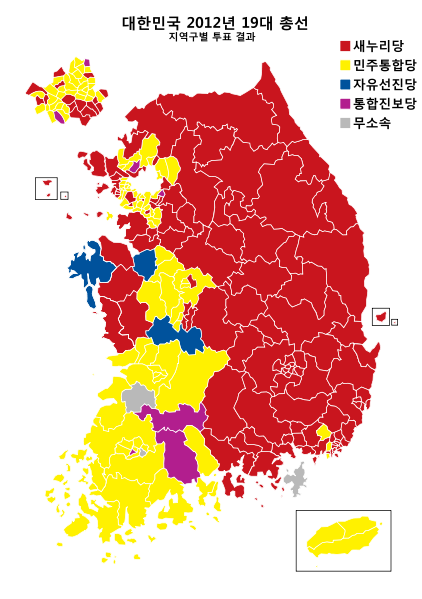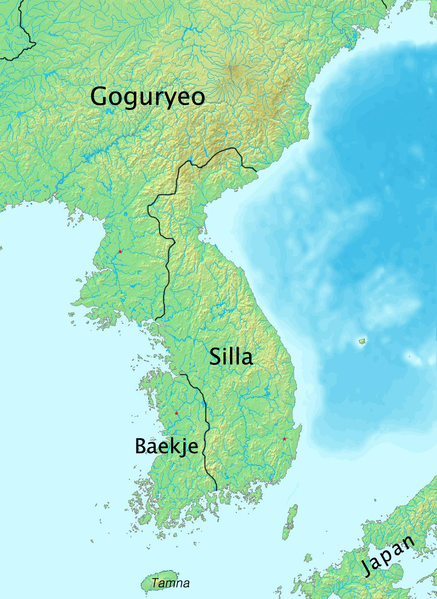There is some guy in Russia who was previously convicted of operating a Ponzi scheme during the go-go post-communist 90's (his conviction was originally delayed because he managed to get elected to parliament, which gave him immunity). Now, he's operating a ponzi scheme again – but this time, he's announced that that's what he's doing, thereby perhaps avoiding illegality – seriously, is it illegal to bilk stupid people of their money, if you tell them that's what you're doing? He argues that that makes him no different than a major bank or a casino. See the article, here. It does rather raise ethical issues, and/or connect to what would be the various appropriate liberal/libertarian/conservative stances with regard to it.
Today I had a busy day despite the start of the test prep time – one of the other teachers was absent, and so I covered some extra classes. And I tried to study, some. And I saw Stephen Colbert
-Notes for Korean-
노래하는 분수대 [no-rae-ha-neun bun-su-dae] = the "Singing Fountain" at Ilsan's Lake Park
수위 [su-wi] = janitor
경비원 [gyeong-bi-won] = building watchman, doorman
바닥 [ba-dak] = floor, ground
마루 [ma-ru] = wooden floor
천장 [cheon-jang] = ceiling
칠판 [chil-pan] = blackboard, whiteboard, chalkboard
부엌 [bu-eok] = kitchen
거실 [geo-sil] = living room
전자레인지 [jeon-ja-re-in-ji] = microwave (electric-range)
가스레인지 [ga-seu-re-in-ji] = stovetop (gas-range)
오븐 [o-beun] = oven
커튼 [keo-teun] = curtain(s)
블라인드 [beul-la-in-deu] = blinds
유리장 [yu-ri-jang] = a pane of glass
시계 [si-gye] = clock, watch
벌 [beol] = punishment
체벌 [che-beol] = corporal punishment (observation on usage: Koreans seem to preferentially use this term for what I, personally, prefer to call "hazing" – it's punishment of the body not by hitting or hurting someone, but rather by compelling them to hold positions or engage in actions which cause discomfort to their own bodies, e.g. making students stand with their arms up in the air for extended periods of time, making them hold heavy objects, making them jog or do pushups or that kind of thing – it's basically boot-camp-style discipline; I don't think this really means corporal punishment the way Americans use that term, although the literal meaning is corporal punishment [body-punish])
교실 [gyo-sil] = classroom
식당 [sik-dang] = dining room [also restaurant]
침 [chim] = bed
침실 [chim-sil] = bedroom [bed-room]
의자 [ui-ja] = chair
창문 [chang-mun] = window
문짝 [mun-jjak] = door [one panel of a multi-part door]
문 [mun] = doorway, gate
책상 [chaek-sang] = desk
책장 [chaek-jang] = bookcase (or, the pages in a book)
식탁 [sik-tak] = table
소파 [so-pa] = sofa
(진공)청소기 [(jin-gong)cheong-so-gi] = vacuum [(vacuum) clean-machine)]
드라이기 [deu-ra-i-gi] = dryer (dry-machine)
기계 [gi-gye] = machine
냉장고 [naeng-jang-go] = refrigerator, cooler
식혜 [sik-hye] = Korean rice drink, cf. horchata
생강 [saeng-gang] = ginger
도토리 [do-to-ri] = acorn (powder, flour)
도토리묵 [do-to-ri-muk] = acorn jelly
염원하다 [yeom-won-ha-da] = to want strongly, to long for
호치키스 [ho-chi-ki-seu] = stapler (really, this is a brand name = ~Hotchkiss?)
절대 않다 [jeol-dae anh-da] = (I/you/he/she) never do/es that
절대 안했어요 [jeol-dae an-haess-eo-yo] = (I/you/he/she) never did that
절대 안할 거에요 [jeol-dae an-hal geo-e-yo] = (I/you/he/she) never will do that
뛰어넘다 [ttwi-eo-nam-da] = to hop
열대 [yeol-dae] = tropical (climate)
온대 [on-dae] = temperate (climate)
냉대 [naeng-dae] = arctic (climate)
아열대 [a-yeol-dae] = subtropical (climate)
야단맛다 [ya-dan-mas-da] = to be scolded
야단치다 [ya-dan-chi-da] = to scold
사랑스러운 눈길로 [sa-rang-seu-reo-un nun-gil-lo] = with a loving gaze
X스럽다 [seu-reop-da] = to feel X about someone else
받아들이다 [bad-a-deur-i-da] = to receive, to get
수용하다 [su-yong-ha-da] = to accept, to receive
수염 [su-yeom] = whiskers
뉘우치다 [nwi-u-chi-da] = to repent a sin
한 [han] = regret (N) [this is one of many homonyms of 한]
[Daily log: walking, 4 km]




















